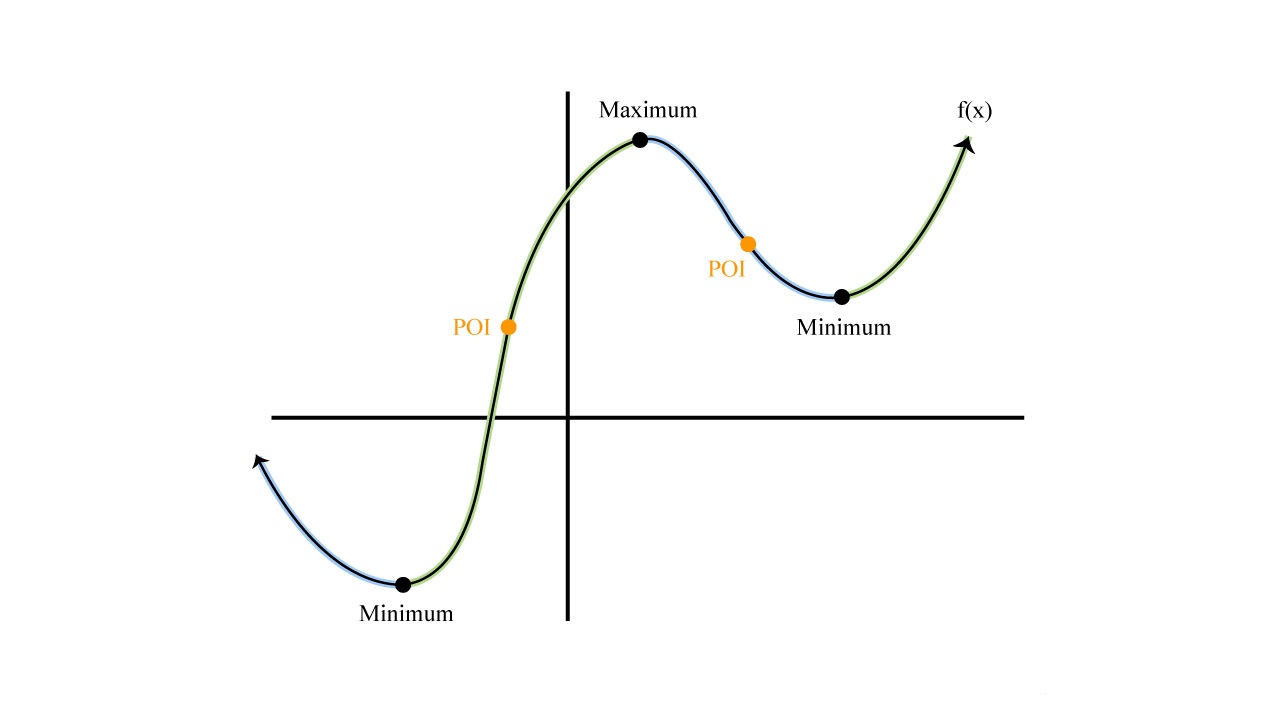

Finance
What Is A Credit Inquiry Letter
Published: March 4, 2024
Learn how to write an effective credit inquiry letter to request a credit report and understand its impact on your financial situation. Find out more about finance-related inquiries.
(Many of the links in this article redirect to a specific reviewed product. Your purchase of these products through affiliate links helps to generate commission for LiveWell, at no extra cost. Learn more)
Table of Contents
Introduction
A credit inquiry letter is a formal document used to request information about an individual's credit history from a credit bureau or reporting agency. This letter serves as a means for individuals to gain insight into the details of their credit report, including inquiries made by potential lenders, employers, or other entities. Understanding the contents of one's credit report is crucial, as it can significantly impact financial opportunities, such as obtaining loans, securing favorable interest rates, or even being considered for employment.
The process of managing one's credit is a fundamental aspect of personal finance, and the credit inquiry letter plays a vital role in this endeavor. By requesting and reviewing their credit report, individuals can identify any inaccuracies, unauthorized inquiries, or potential signs of identity theft. Armed with this knowledge, they can take appropriate steps to rectify any discrepancies and safeguard their financial standing.
Furthermore, the credit inquiry letter empowers individuals to maintain a clear understanding of their creditworthiness. This awareness can facilitate informed decision-making when pursuing financial endeavors, as it provides insight into how potential creditors or employers might perceive their credit history.
In the following sections, we will delve deeper into the purpose of a credit inquiry letter, the circumstances under which it is utilized, its essential components, and guidance on crafting an effective credit inquiry letter. Additionally, a sample credit inquiry letter will be provided to offer a practical illustration of the document's structure and content. Understanding the significance of the credit inquiry letter and how to leverage it effectively can be instrumental in managing one's financial well-being.
Purpose of a Credit Inquiry Letter
The primary purpose of a credit inquiry letter is to obtain a comprehensive understanding of an individual’s credit report, particularly the inquiries made by various entities regarding their credit history. By requesting this information, individuals can monitor who has accessed their credit information and for what purpose. This transparency is essential for maintaining the accuracy and integrity of one’s credit profile.
Another crucial objective of the credit inquiry letter is to identify any unauthorized or erroneous inquiries on the credit report. Unauthorized inquiries can be indicative of potential identity theft or fraudulent activity. Detecting and addressing such unauthorized access to one’s credit information is vital for safeguarding personal financial security.
Furthermore, the credit inquiry letter serves as a tool for individuals to assess their creditworthiness. By reviewing the inquiries listed in their credit report, individuals can gauge how their credit history is perceived by potential lenders, landlords, or employers. This insight can be instrumental in preparing for future credit applications or employment opportunities, as it provides a glimpse into how others assess their financial reliability.
Moreover, the credit inquiry letter enables individuals to rectify any inaccuracies or discrepancies in their credit report. If the inquiries listed in the report are not recognized or are deemed to be erroneous, the credit inquiry letter serves as a formal means to dispute and seek clarification regarding such entries. This process is essential for ensuring the integrity and accuracy of the information contained in the credit report, which in turn impacts various financial opportunities.
Overall, the purpose of a credit inquiry letter is multifaceted, encompassing the need for transparency, protection against unauthorized access, assessment of creditworthiness, and the rectification of any inaccuracies. By serving these purposes, the credit inquiry letter empowers individuals to actively manage and monitor their credit information, contributing to their overall financial well-being.
When to Use a Credit Inquiry Letter
There are several scenarios in which individuals may need to utilize a credit inquiry letter to access and review their credit report. Understanding these situations is crucial for recognizing the relevance and applicability of the credit inquiry letter in managing one’s financial affairs.
Monitoring Credit Activity: Regularly checking one’s credit report is a sound financial practice. Using a credit inquiry letter to obtain a copy of the credit report allows individuals to monitor and review the inquiries made by potential lenders, landlords, or employers. This proactive approach enables them to stay informed about who has accessed their credit information and for what purpose, thereby maintaining vigilance against unauthorized or suspicious activity.
Preparing for Financial Transactions: Prior to applying for a significant loan, such as a mortgage or an auto loan, individuals may opt to request their credit report using a credit inquiry letter. This preemptive measure allows them to assess the inquiries listed in the report and address any discrepancies or concerns before initiating the loan application process. By doing so, they can present a more accurate and favorable credit profile to potential lenders, potentially enhancing their eligibility for better loan terms.
Addressing Identity Theft Concerns: In the event of suspected identity theft or unauthorized access to one’s credit information, a credit inquiry letter becomes a crucial tool for investigating and addressing the situation. By promptly requesting a copy of their credit report, individuals can identify any unauthorized inquiries and take appropriate steps to mitigate the impact of potential fraudulent activity. This proactive response is essential for protecting one’s financial reputation and mitigating the adverse effects of identity theft.
Disputing Inaccurate Information: If individuals discover inaccuracies or unauthorized inquiries in their credit report, they can use a credit inquiry letter to formally dispute and seek clarification regarding such entries. This process involves communicating with the credit bureau or reporting agency to rectify any erroneous information, ensuring the accuracy and integrity of their credit report. By leveraging the credit inquiry letter in this manner, individuals can actively address discrepancies and maintain a reliable credit profile.
By recognizing these scenarios, individuals can discern the appropriate times to utilize a credit inquiry letter, thereby empowering themselves to actively manage and protect their credit information.
Components of a Credit Inquiry Letter
When crafting a credit inquiry letter, certain essential components should be included to ensure its effectiveness and clarity. These components form the foundation of the letter and enable individuals to convey their request for a credit report and any associated inquiries in a formal and structured manner.
Personal Information: The credit inquiry letter should begin with the individual’s personal information, including their full name, current address, and contact details. This information is crucial for accurately identifying the requester and facilitating the delivery of the requested credit report.
Date of Request: It is important to specify the date on which the credit inquiry letter is being submitted. Including the date adds a timestamp to the request and serves as a reference point for both the requester and the recipient of the letter.
Description of Request: The letter should clearly state the purpose of the request, which is to obtain a copy of the individual’s credit report. Additionally, if there are specific inquiries or entries in the credit report that the individual wishes to address or inquire about, these should be clearly articulated in the letter.
Formal Request for Credit Report: The credit inquiry letter should explicitly express the formal request for the individual’s credit report. This request should adhere to the guidelines and regulations stipulated by the relevant credit reporting agencies or bureaus to ensure compliance with the established procedures for requesting credit information.
Authorization and Identification: In some cases, individuals may need to provide authorization for the release of their credit report. This may involve including a statement consenting to the disclosure of their credit information and verifying their identity through the inclusion of relevant identification details, such as a driver’s license number or social security number.
Contact Information and Signature: The credit inquiry letter should conclude with the individual’s contact information, such as a phone number or email address, and their signature. Including these details enables the recipient to reach out for any necessary clarifications, and the signature serves as a formal endorsement of the request.
By incorporating these components into the credit inquiry letter, individuals can effectively communicate their request for a credit report and any specific inquiries, ensuring that their communication with the credit bureau or reporting agency is clear, formal, and compliant with relevant regulations.
How to Write a Credit Inquiry Letter
When composing a credit inquiry letter, it is essential to adhere to certain guidelines to ensure that the letter effectively conveys the request for a credit report and any associated inquiries. Following a structured approach can enhance the clarity and formality of the letter, increasing the likelihood of a prompt and accurate response from the credit bureau or reporting agency.
Begin with Personal Information: The letter should commence with the individual’s personal details, including their full name, current address, and contact information. Providing accurate and up-to-date personal information is crucial for ensuring that the requested credit report is correctly attributed to the requester.
Specify the Date: Including the date of the letter is important for establishing a clear timeline for the request. This date serves as a reference point for both the requester and the recipient of the credit inquiry letter.
Clearly State the Purpose: The letter should explicitly state the purpose of the request, which is to obtain a copy of the individual’s credit report. If there are specific inquiries or entries in the credit report that the individual wishes to address or inquire about, these should be clearly articulated in the letter.
Formally Request the Credit Report: Clearly express the formal request for the individual’s credit report, adhering to the guidelines and procedures outlined by the relevant credit reporting agencies or bureaus. It is important to use formal language and adhere to any specific requirements for requesting credit information.
Provide Authorization and Identification if Required: If the release of the credit report requires authorization or verification of identity, ensure that this information is included in the letter. This may involve providing a statement consenting to the disclosure of credit information and including relevant identification details, such as a driver’s license number or social security number.
Conclude with Contact Information and Signature: The letter should conclude with the individual’s contact details, such as a phone number or email address, and their signature. Including these details enables the recipient to reach out for any necessary clarifications, and the signature serves as a formal endorsement of the request.
By following these steps and incorporating the essential components into the credit inquiry letter, individuals can effectively communicate their request for a credit report and any specific inquiries. This structured approach enhances the professionalism and formality of the letter, increasing the likelihood of a prompt and accurate response from the credit bureau or reporting agency.
Sample Credit Inquiry Letter
Below is a sample credit inquiry letter that illustrates the essential components and structured approach to requesting a credit report and addressing specific inquiries or concerns:
[Your Name]
[Your Address]
[City, State, Zip Code]
[Your Email Address]
[Your Phone Number]
[Date]
[Recipient’s Name]
[Credit Bureau or Reporting Agency Name]
[Address]
[City, State, Zip Code]
Dear [Recipient’s Name],
I am writing to request a copy of my credit report from [Credit Bureau or Reporting Agency Name]. As a responsible consumer, I understand the importance of monitoring and reviewing my credit history to ensure its accuracy and integrity.
I kindly request that you provide me with a comprehensive credit report that includes details of all inquiries made regarding my credit history. Specifically, I am interested in reviewing any recent inquiries made by potential lenders or other entities. Additionally, I would appreciate clarification on the nature and purpose of these inquiries to gain a thorough understanding of the information contained in my credit report.
If necessary, I authorize the release of my credit report and verify my identity as required. My identification details are as follows: [Include Driver’s License Number or Social Security Number if applicable].
Should you require any further information or documentation to process this request, please do not hesitate to contact me at the provided email address or phone number. I am committed to ensuring that my credit information is accurate and up-to-date, and I appreciate your prompt attention to this matter.
I kindly request that this credit inquiry be processed in a timely manner, and I look forward to receiving the requested credit report at your earliest convenience.
Thank you for your assistance in this matter.
Sincerely,
[Your Signature]
[Your Printed Name]
By utilizing this sample credit inquiry letter as a reference, individuals can structure their own formal request for a credit report and any specific inquiries, ensuring that their communication with the credit bureau or reporting agency is clear, professional, and compliant with relevant regulations.
Conclusion
The credit inquiry letter serves as a valuable tool for individuals seeking to gain insight into their credit history, monitor inquiries made by potential creditors or employers, and address any discrepancies or concerns within their credit report. By understanding the purpose, appropriate usage, essential components, and structured approach to crafting a credit inquiry letter, individuals can actively manage and protect their credit information, contributing to their overall financial well-being.
Through the formal request for a credit report and the inclusion of specific inquiries or concerns, individuals can leverage the credit inquiry letter to maintain transparency, safeguard against unauthorized access, assess their creditworthiness, and rectify any inaccuracies. This proactive approach empowers individuals to make informed decisions when pursuing financial opportunities, such as applying for loans, securing favorable interest rates, or seeking employment.
Furthermore, the sample credit inquiry letter provided offers a practical illustration of how to structure a formal request for a credit report, ensuring that the communication with the credit bureau or reporting agency is clear, professional, and compliant with relevant regulations. By following this guidance, individuals can navigate the process of requesting and reviewing their credit report with confidence and diligence.
Incorporating the principles and practices outlined in this article, individuals can effectively harness the credit inquiry letter as a means to actively manage and monitor their credit information, ultimately contributing to their financial stability and security.
By recognizing the significance of the credit inquiry letter and the opportunities it presents for safeguarding one’s financial standing, individuals can proactively engage in the management of their credit information, fostering a more informed and empowered approach to personal finance.














